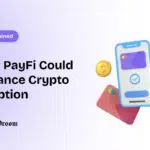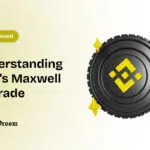Even without advanced programming skills, Web 3.0 builders can leverage token makers and mint their blockchain assets. Technically, token makers are no-code blockchain development tools.
Token Makers empowers web 3.0 builders with the simplicity of creating and deploying cryptocurrency projects by eliminating the tedious tasks of coding smart contracts.
Before we had this technology, cryptocurrency development belonged to computer scientists and advanced programmers. Therefore, the development of decentralised applications was limited to only skilled developers.
The emergence of no code technology across smart contracts deployment, dApp building and cryptocurrency creation has opened doors to everyone who wants to experiment or build their ideas on DEFI. Such tools are particularly beneficial to anyone with an Idea who would want to scale it beyond the MVP stage.
There are different types of token makers depending on the token standards of the platform you intend to build. I.e. ERC20 or even BRC-20. It also bears mentioning that token generators allow developers to customize certain parameters such as token validity or token revocation.
Create #CRYPTO tokens with zero code.
With Tokenmaker, you can mint ERC-20, BEP-20 & NFTs right now, on the blockchain, for free!
Learn more, here: https://t.co/ZvnHTJs5fF and don't miss out on the future of finance.
— TokenMaker.org (@tokenmaker) April 23, 2021How Do Token Makers Work?
A token maker automates the process of creating a token or cryptocurrency. The automation is implemented across the creation of customized tokenomics and the cryptography design ensures privacy and security are top-notch.
A token represents assets or utilities on a blockchain. Let’s say you want to convert a valuable utility into a digital token, a token maker will help convert that utility into either a tangible or intangible digital asset. A tangible asset has a physical form while an intangible form could be anything from contracts, licensing, loyalty points, ownership rights and so on.
Initially, token creation was preserved for highly skilled advanced programmers. Today, token makers have replaced the need for programming skills with no-code tools.
Builders will only have to understand the framework and building blocks of a token, the unique specifications for creating each smart contract and the process of testing and verifying the token’s source code. Besides, the token maker helps you create and deploy a token smart contract in less than 10 minutes, without any code.
Read more about the role of smart contracts in DEFI, in this article on DroomDroom.com.
What are the steps for using a token maker when writing smart contracts?
Pick a blockchain
Take time to carefully select the right blockchain you intend to deploy the app. Ethereum is the most common choice for building smart contracts using the ERC-20 token standard. Other suitable blockchains in DEFI include Tron, the Binance Smart Chain or EOS.
Token Specification
The next part is for the customer to understand their needs and specifications. Carefully consider what you are building, and what are the mandatory attributes of your token and features. Mention token name, symbol, number of decimal places, total supply, minting features, token burning or time-locking capabilities.
Smart contract generation
After feeding token specification details into the token maker, the tool generates the smart contract code for the dApp and the token. A smart contract code contains the programmed logic and rules for token balances, transfers, fees and functionalities.

Source: G2
Smart contract deployment
After generating the smart contract, the no-code tool deploys the smart contract to the blockchain of choice. This process involves paying gas fees in let’s ETH for Ethereum-based smart contracts and sending the transaction to the blockchain.
Token interaction
After deploying the smart contract to the blockchain, it’s time for you or your team to interact with the newly deployed dApp. Token users can transfer, hold, receive or trade the token depending on what rules were in the smart contract.
Integration
Builders can now integrate the token into various decentralized applications, exchanges or wallets.
Holders can also monitor their tokens, and activities and track the distribution of the token across the blockchain and community through a robust wallet.
Types of Cryptocurrency Tokens You Can Build with a Token Maker
There are 4 major types of cryptocurrency tokens. These are:
- Security tokens: Security tokens represent intangible assets like voting rights or shareholding in a centralized organization. Securities tokens can also represent intangible assets like real estate rights.
- Tokenized securities: These are digital representations of underlying traditional assets such as bonds, money market funds, equity or investment funds.
- Currency tokens: A currency token operates as a designated virtual currency that users can trade, spend or make payments. Some currency tokens might be asset-backed, while others are algorithmically backed by a particular national currency like the USD.
- Utility tokens: A utility token represents the right to access a given blockchain product or solution. Sometimes, developers may code consensus properties into a utility token such as proof-of-work. This is why most utility tokens come with benefits such as the ability to pay transaction fees, vote in a DAO or send payments.
What Are the Pros and Cons of Token Makers?
Nonetheless, there are projects where token makers might not be suitable. For instance, developers who want to deploy complex smart contracts might view token makers as too simplistic in nature.
Reputable token-maker platforms can streamline the process of creating a DaPP, provide maximum cryptographic security features and eliminate the need to hire expert blockchain programmers.
Drawbacks associated with token-makers include less customization features due to their plug-and-play nature. This could make it difficult for builders to deploy smart contracts with more versatile features. On the other hand, some no-code token makers charge hefty fees when using their services.
However, token makers are a suitable asset and one that’s very helpful when kickstarting blockchain projects. Over the years, we anticipate token-maker tools to evolve and become even more intuitive and secure.
How to Choose a Suitable Token Maker?
A suitable token maker has advanced security features, has a reputable solution for no-code app deployment and is highly customizable.
How do you pick the right token generator for your dApp? First of all, the Internet is full of dubious no-code solutions. Most of these are out to swindle customer funds due to their poor interface, poor security features and lack of dedicated customer support.

The best way to find a suitable token maker is by testing out different types. Play around with each platform’s features, check out user reviews and ensure the provider has a committed customer support team.
Check whether the token maker has other advanced features such as the ability to burn, blacklist, mint, or expire a group of tokens. Other factors to consider include cost, customer experience and security. Compare the fee structure and each platform’s level of customisation, and check whether your budget and needs match with the platform.
Regular updates of the platform are also necessary to keep the platform secure. Ascertain that the no-code solution facilitates bug reporting features, deploys regular updates and maintains the platform.
Conclusion
The creation of smart contracts, cryptocurrencies and dAPPs should meet strict regulatory requirements, high-security standards and reverse user data privacy. For this reason, we recommend cautious implementation of no-code tools, token generators and token builders when deploying smart contracts. A lot of financial risks are involved in any cryptocurrency platform, therefore, builders should tread this path cautiously to avoid falling on the wrong side of the law.
A small logical mistake on a smart contract code might easily result in a massive loss of funds. Beginning entrepreneurs deploying a DaPP for the first time through a token builder might fall into the temptation of not hiring a smart contract audit. This might make it difficult to spot vulnerabilities and leave some open loopholes for cyber criminals to exploit customer funds.
















